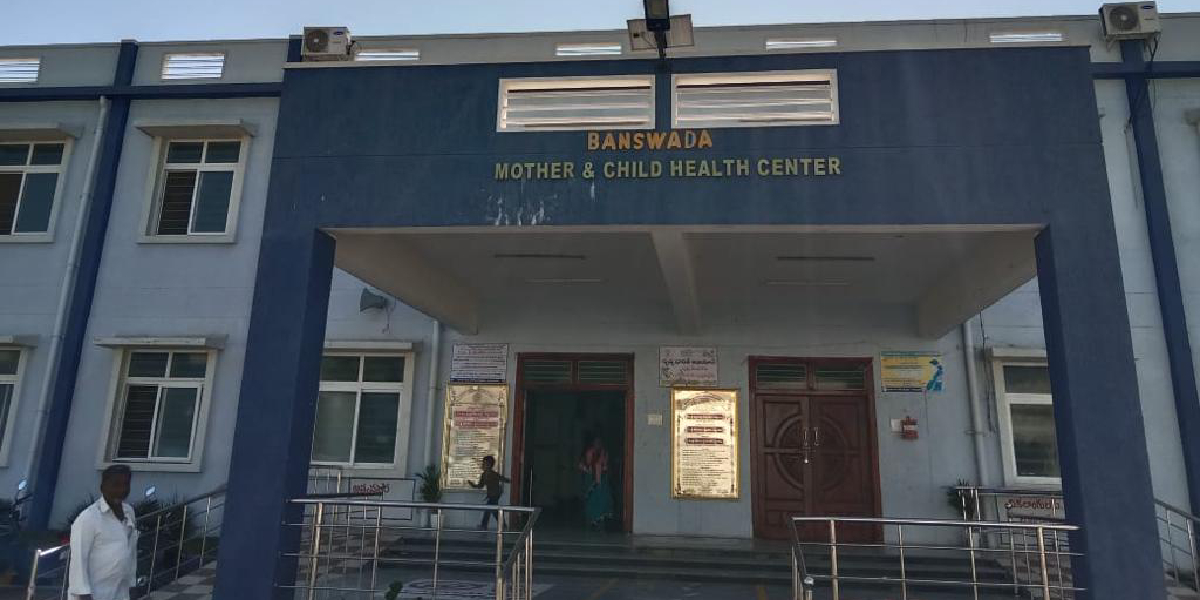Being “Breastfeeding Friendly” is a chance for a maternity hospital to highlight the best standard of care of breastfeeding mothers.

The hospital becomes the seventh in the country to be recognised as Breastfeeding Friendly Hospital. (Supplied)
The Maternal and Child Health (MCH) Hospital at Banswada in the Kamareddy district of Telangana has been recognised as a “Breastfeeding Friendly Hospital” by the Baby Friendly Hospital Initiative (BFHI), which promotes breastfeeding.
The hospital thus became the seventh in the country to be recognised as a Breastfeeding Friendly Hospital.
Clinics promoting breastfeeding in accordance with these criteria are jointly selected by UNICEF, the Breastfeeding Promotion Network of India (BPNI), and the Association of Health Providers India (AHPI), and given BFHI accreditation. This certificate is valid for three years.
A statement from Telangana’s Department of Health said that Banswada MCH achieved the record of being the first government hospital in India to achieve this feat.
However, according to BFHI, this is the third government hospital to get this recognition.
“It is crucial for a pregnant mother to find a hospital that will assist her with the initiation of breastfeeding within an hour of giving birth and provide skin-to-skin contact with the baby. This step ensures good bonding, immediate temperature control, better success at breastfeeding and both short and long-term positive health impacts for the mother and child both,” said BPNI in a statement.
According to BPNI Central Coordinator Dr Arun Gupta, a pediatrician who developed this initiative and spent more than three decades striving to increase breastfeeding in India, the “Breastfeeding Friendly Hospital Initiative” could significantly impact early breastfeeding rates.
“We observe that more mothers with C-section are now able to breastfeed successfully in the hospital within an hour of birth. Therefore, this inexpensive but effective work can be a game changer if more hospitals come forward,” he noted.
“It is not a pass-or-fail situation, we in fact help the hospital to achieve the best possible standards in a few months. They can then continue to monitor themselves.”
A breastfeeding-friendly hospital, as defined by the World Health Organisation (WHO), is a health facility that has implemented the 10 Steps to Successful Breastfeeding, which are evidence-based practices that promote and support breastfeeding.
The steps were developed by WHO and UNICEF in 1989 and are part of the Baby-Friendly Hospital Initiative (BFHI), a global programme that encourages and recognises hospitals and birthing centres that offer optimal care for infant feeding and mother-baby bonding.
The 10 steps to successful breastfeeding, as outlined by WHO, include:
“By implementing these steps, hospitals can create an environment that supports and encourages successful breastfeeding, which can lead to improved health outcomes for both mother and baby,” according to WHO.
Apart from this, the central government is also implementing a special program called Mother’s Absolute Affection (MAA).
After two rounds of inspection, a special team recently arrived from Delhi and visited Banswada MCH. Accreditation was granted after making sure that all the standards were followed.
The state’s Health Department said that experts suggest that the baby should be exclusively breastfed for six months after the baby’s colostrum is reduced within half an hour of birth.
“Studies have shown that 22 percent of deaths among children under five years of age can be prevented if they will be breastfeeding in the first six hours. The state government has given special attention to breastfeeding. The medical staff and hospitals are widely educating the pregnant and lactating women,” said the health department in a statement.
They also said that 35 master trainees trained in collaboration with the Breastfeeding Promotion Network of India. Specifically, it has appointed “Voluntary Lactation Workers” for the first time in the country.
“They educate pregnant and lactating women in the hospital about breast milk and give milk to babies within half an hour of giving birth,” said the health department.
According to the health department, currently, there are three volunteers in Banswada MCH.
“Banswada MCH is delighted to receive BFHI accreditation. Special congratulations to the medical staff of the hospital on this occasion. This is proof that better quality medical services are being provided to the people of the state. Many government hospitals in the state have already achieved national quality certificates,” state Health Minister T Harish Rao said in a statement.
Delighted to share that for the first time in the country Banswada Mother & Child hospital received breastfeeding-friendly accreditation by BFHI- NAC.
Kudos to doctors and staff for implementing @WHO’s steps to successful breastfeeding & guidance of MAA program.#ArogyaTelangana pic.twitter.com/UjBLzUbPIO
— Harish Rao Thanneeru (@BRSHarish) February 17, 2023

May 18, 2024

May 18, 2024

May 18, 2024

May 18, 2024

May 18, 2024

May 18, 2024